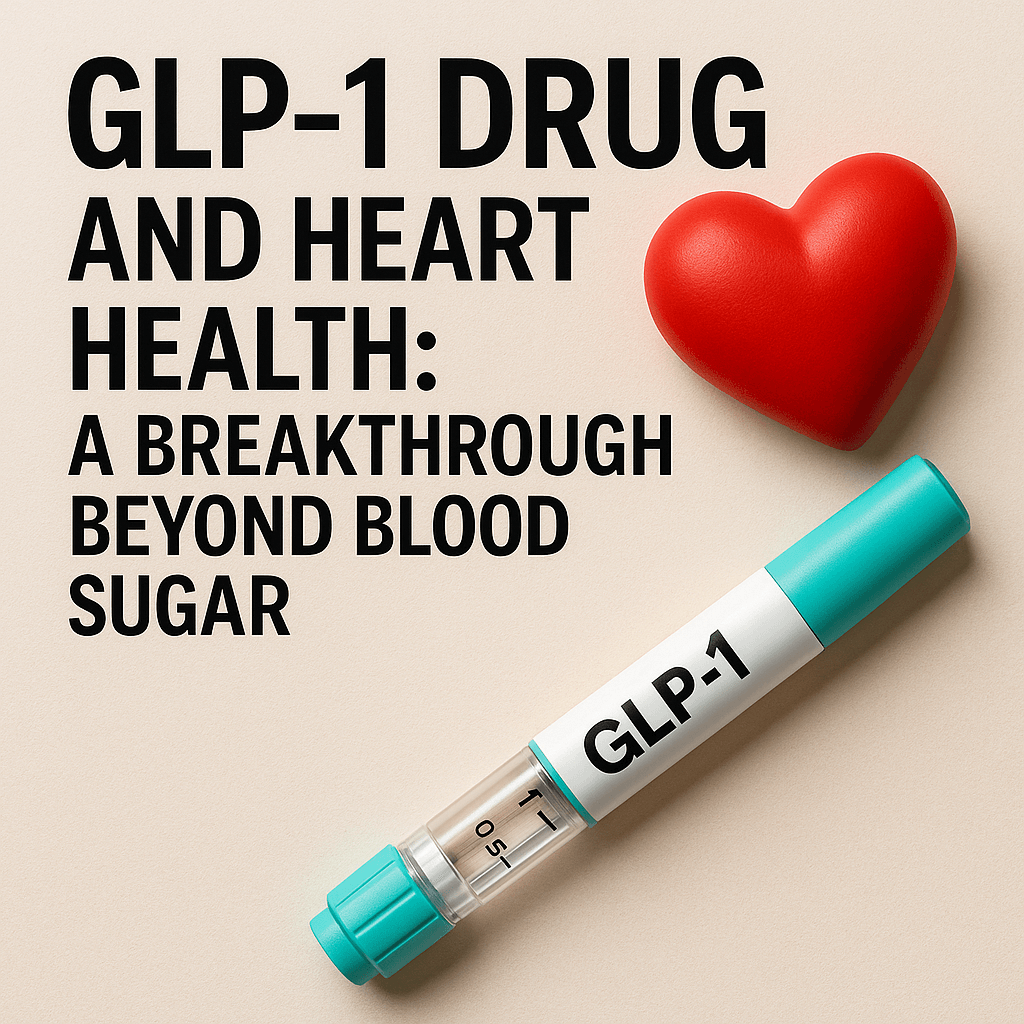GLP-1 Drugs and Heart Health: A Breakthrough Beyond Blood Sugar
Published on September 02, 2025
In recent years, glucagon-like peptide-1 receptor agonists (GLP-1 drugs) have gained widespread recognition for their ability to manage type 2 diabetes and support weight loss. However, beyond controlling blood sugar and reducing obesity, research has revealed another significant benefit: cardiovascular protection. With heart disease remaining the leading cause of death worldwide, the potential of GLP-1 therapies to reduce cardiovascular risk could mark one of the most important medical advancements of the 21st century.
Diabetes, Obesity, and Cardiovascular Risk
Type 2 diabetes and obesity are two of the strongest risk factors for cardiovascular disease. High blood sugar damages blood vessels over time, while excess body weight contributes to high cholesterol, hypertension, and systemic inflammation. Traditional diabetes medications often focused solely on lowering glucose levels without necessarily improving cardiovascular outcomes. In some cases, older drugs even increased heart risks. GLP-1 drugs have shifted this paradigm by demonstrating clear heart-protective benefits.
Clinical Evidence of Cardiovascular Benefits
Large-scale clinical trials have confirmed the positive impact of GLP-1 drugs on heart health. The LEADER trial, for example, showed that liraglutide significantly reduced the risk of major adverse cardiovascular events (MACE), including heart attack, stroke, and cardiovascular death, in patients with type 2 diabetes at high cardiovascular risk. Similarly, the SUSTAIN-6 trial found that semaglutide not only improved glycemic control but also lowered the risk of stroke.
These findings were groundbreaking because they demonstrated that diabetes treatments could directly improve survival rates and reduce heart-related complications. For many clinicians, this shifted GLP-1 drugs from being “just another diabetes therapy” to an essential tool for comprehensive cardiovascular risk management.
Mechanisms of Heart Protection
While the exact mechanisms are still being studied, researchers believe several factors explain the cardiovascular benefits of GLP-1 receptor agonists:
- Weight Loss – By reducing appetite and body weight, GLP-1 drugs lower obesity-related stress on the heart.
- Blood Pressure Reduction – Clinical studies have shown modest but meaningful reductions in systolic blood pressure.
- Anti-Inflammatory Effects – Chronic inflammation contributes to arterial damage; GLP-1 drugs appear to reduce this process.
- Improved Cholesterol Profiles – Some patients see reductions in LDL cholesterol and triglycerides.
Together, these effects reduce strain on the cardiovascular system, lowering the risk of heart failure and other complications.
Expanding Use Beyond Diabetes
Because of these benefits, GLP-1 drugs are increasingly being prescribed not only for diabetes but also for people with obesity and cardiovascular risk factors. In fact, some cardiologists now view GLP-1 receptor agonists as part of a holistic heart disease prevention strategy, alongside statins, antihypertensives, and lifestyle interventions. As more evidence accumulates, regulatory approvals may broaden to include cardiovascular prevention even in patients without diabetes.
Barriers to Wider Adoption
Despite the strong evidence, access remains a concern. GLP-1 drugs are costly, and insurance coverage varies by country and provider. Additionally, side effects like nausea or gastrointestinal discomfort may discourage long-term use. Widespread education for both patients and clinicians is also needed to ensure these medications are used appropriately and effectively.
The Future of Cardiometabolic Care
The emergence of GLP-1 receptor agonists as cardiovascular therapies represents a major milestone in medicine. By addressing blood sugar, weight, and heart health simultaneously, they provide a powerful solution to interconnected health problems that affect millions worldwide. Future research may reveal even broader applications, potentially extending into kidney disease prevention and neurological health.
In conclusion, GLP-1 drugs are more than just diabetes medications—they are reshaping how doctors approach cardiovascular risk. If affordability and access challenges can be resolved, they may become a cornerstone of modern heart health strategies, saving lives on a global scale.
